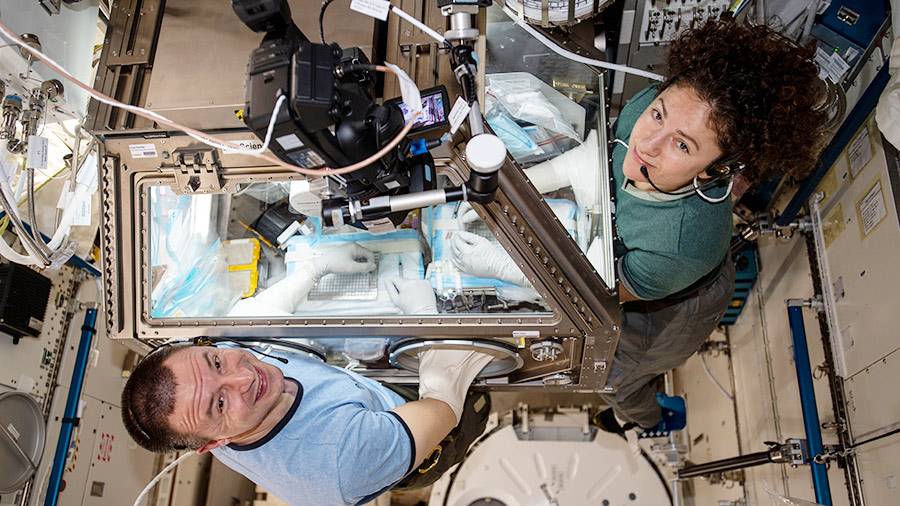
New bone research kicked off on the International Space Station today to improve human health on and off the Earth. The Expedition 62 crew also practiced an emergency simulation with ground controllers.
Living in space causes bone loss and scientists are studying ways to offset the negative effects to ensure long-term mission success. Results from the new OsteoOmics-02 study aboard the orbiting lab also have implications bone diseases on Earth.
NASA astronauts Jessica Meir and Andrew Morgan spent Thursday morning setting up the bone experiment hardware for operations in the Life Sciences Glovebox. Doctors will be observing the mechanisms of rapid bone loss in microgravity and extend that knowledge to learn more about osteoporosis on Earth.
The duo then joined Commander Oleg Skripochka of Roscosmos in the afternoon and practiced their emergency response training. The three crewmates coordinated their communication, roles and responsibilities with mission controllers in Houston and Moscow. In the unlikely event of a fire, chemical leak or pressure leak, the crew would need to locate safety gear, close module hatches and possibly evacuate the station aboard a Soyuz crew ship.
Before the training session, Skripochka spent the morning on an experiment exploring how long-term spaceflight impacts the professionalism of a crewmember. Results will help Russian scientists understand how a cosmonaut will react to different phases of a mission such as docking to another spacecraft or landing on another planet.
